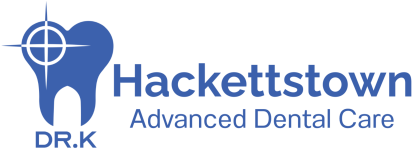Halloween is around the corner, which for most children means bags of free candy and a chance to build a stockpile of sweets for the winter. No surprise, Halloween can also present parents with a variety of healthy and safety challenges. It’s OK to eat that candy on Halloween but it’s important to have a plan.
Here’s how you can help your family stay mouth healthy on Halloween and year-round.
1. Choose Candy Carefully
Avoid hard candy and other sweets that stay in your mouth for a long time. Aside from how often you snack, the length of time sugary food is in your mouth plays a role in tooth decay.
Unless it is a sugar-free product, candies that stay in the mouth for a long period of time subject teeth to an increased risk for tooth decay.
2. Stay Away from Sweet Snacks
Snacking can increase your risk of cavities, and it’s double the trouble if you keep grabbing sugary treats from the candy bowl. Snacking on candy throughout the day is not ideal for your
dental health or diet.
3. Time It Right
Eat Halloween candy (and other sugary foods) with meals or shortly after mealtime. Saliva production increases during meals. This helps cancel out acids produced by bacteria in your
mouth and rinse away food particles.
4. Avoid Sticky Situations
Sticky candies cling to your teeth. The stickier candies like taffy, sour patch kids, candy corn, and gummy bears, take longer to get washed away by saliva, increasing the risk for tooth decay. They also contain acids that can cause erosion to the tooth enamel.
5. Have a Plan
It’s tempting to keep that candy around, but your teeth will thank you if you limit your stash. Have your family pick their favorites and donate the rest. Look for organizations that help you
donate candy to troops overseas, like Operation Gratitude.
6. Drink More Water
Drinking fluoridated water can help prevent tooth decay. If you choose bottled water, look for kinds that are fluoridated such as Deer Park, Poland Spring, and Crystal Springs.
7. Maintain a Healthy Diet
Your body is like a complex machine. The foods you choose as fuel and how often you “fill up” affect your general health and that of your teeth and gums.
8. Stay Away from Sugary Beverages
This includes soda, sports drinks and flavored waters. When teeth come in frequent contact with beverages that contain sugar, the risk of tooth decay is increased.
9. Chew Gum with the ADA Seal
Chewing sugarless gum, especially gum containing Xylitol, for 20 minutes after meals helps reduce tooth decay. Increased saliva flow helps wash out food and neutralize the acid produced
by bacteria. You might even want to think about giving sugarless gum out as a treat instead of candy. Find one with the ADA seal.
10. Brush Twice a Day
Brush your teeth twice a day for two minutes with an ADA-accepted fluoride toothpaste. Remember, replace your toothbrush every three or four months, or sooner if the bristles are
frayed. A worn toothbrush won’t do a good job of cleaning your teeth.
11. Clean Between Your Teeth
Floss your teeth once a day. Decay-causing bacteria gets between teeth where toothbrush bristles cannot reach. Flossing helps remove plaque and food particles from between the teeth
under the gumline.
12. Visit Your Dentist
Regular visits to your dentist can prevent small problems from becoming large problems.
